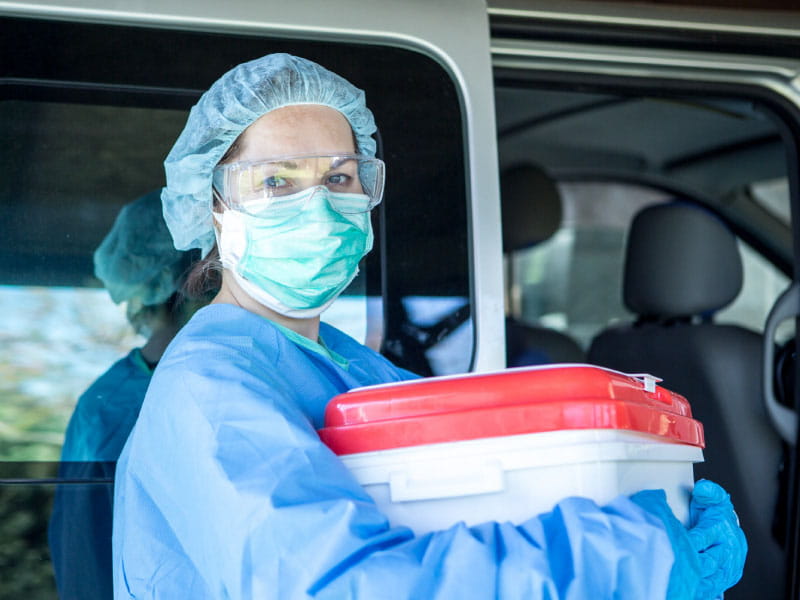Hearts from COVID-19-positive donors appear safe for transplant
By American Heart Association News

Donor hearts from people with COVID-19 may be just as safe as those from people without, finds a short-term analysis of the first such transplants done in the United States.
"These findings suggest that we may be able to be more aggressive about accepting donors that are positive for COVID-19 when patients are in dire need of an organ for heart transplantation," study researcher Samuel T. Kim said in a news release. Kim is a third-year medical student at the David Geffen School of Medicine at the University of California, Los Angeles.
The findings, being presented Sunday at the American Heart Association's Scientific Sessions conference, are considered preliminary until full results are published in a peer-reviewed journal.
Heart transplants are recommended for people with advanced heart failure, according to 2022 guidelines from the AHA, American College of Cardiology and Heart Failure Society of America. People with advanced heart failure have severe symptoms that may interfere with daily living, such as shortness of breath, fatigue and swelling in the legs, ankles, feet or abdomen. Even when treated, advanced heart failure can result in recurring hospitalizations.
More than 3,000 people in the U.S. are currently awaiting donor hearts, according to the federal Organ Procurement and Transplantation Network. Demand for heart transplants more than doubled between 1988 and 2020.
In the new study, researchers analyzed data for 3,289 adult heart transplants performed in the U.S. from February 2021 to March 2022, which included the first 84 transplanted hearts from people who had tested positive for COVID-19. The researchers compared post-operative complications, such as organ rejection, post-operative stroke and dialysis, along with 30-day death rates for those who received hearts from people with and without COVID-19. Researchers looked specifically at deaths from infections and lung complications, which are known concerns for people who have had COVID-19.
The analysis found no significant differences in outcomes between the two groups. Whether the heart had come from someone positive for COVID-19 or not, both groups of transplant recipients had similar death rates in the hospital and within 30 days of transplant. They also had similar rates of complications.
People who received hearts from COVID-19-positive donors stayed in the hospital an average of 15 days, compared with 17 days for those who received hearts from people without COVID-19. The group with hearts from COVID-19-positive donors experienced a 2.4% organ rejection rate, compared with a 1% rejection rate for other heart transplant recipients.
Survival rates for the two groups also were similar, the study found. Among those who received hearts from COVID-19-positive donors, 96.1% survived the first 30 days, compared with 97% of those who received donor hearts from people without the virus. Four people died after receiving a heart from a COVID-19-positive donor, but none died from respiratory causes or infections.
Because hearts donated by people with COVID-19 initially were considered unsuitable for transplant, the shortage of available donor organs had been growing worse, Kim said. But in recent months, academic centers have been using hearts from COVID-19-positive donors with good results.
"The potential risks appear to be lower than expected," said heart failure specialist Dr. Eldrin F. Lewis, chair of the division of cardiovascular medicine at Stanford University in California. He was not involved in the study.
"In turn, this may help to address the shortages in donor hearts for transplantation and reduce waiting times, since people often get sicker as heart failure progresses while waiting for a donor heart to become available," Lewis said.
Editor's note: Because of the rapidly evolving events surrounding the coronavirus, the facts and advice presented in this story may have changed since publication. Visit Heart.org for the latest coverage, and check with the Centers for Disease Control and Prevention and local health officials for the most recent guidance.
Find more news from Scientific Sessions.
If you have questions or comments about this American Heart Association News story, please email [email protected].





